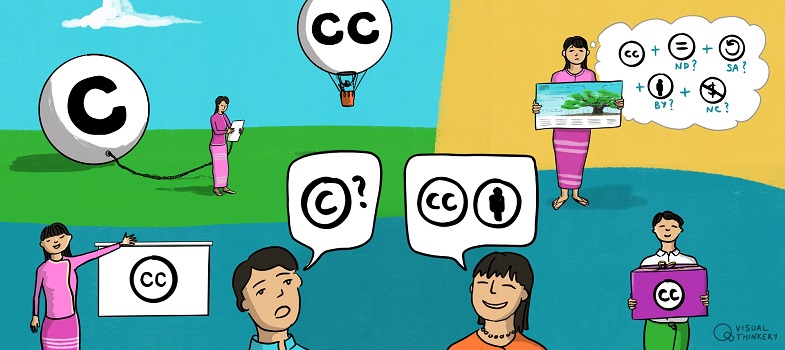Unit 4: Additional resources
4.1 Open educational resources (OER)
Why CC BY?
Read the article ‘Open textbook community advocates CC BY licence for open textbooks‘ [Tip: hold Ctrl and click a link to open it in a new tab. (Hide tip)] and think about why they recommend the Creative Commons Attribution Licence (CC BY) for education. You can find similar text with more arguments made about this same licence for publishing scientific research in ‘Why CC-BY?‘ from the Open Access Scholarly Publishers Association.
Video resources on OER and MOOC
For an introduction on why it is important to share work as OER, watch the videos ‘Open education matters: why is it important to share content?’ and ‘Why OER?’. You can also watch the video ‘What is a MOOC?’ by Dave Cormier (CC-BY 3.0).
Open courseware
To see further examples of open courseware, visit the Open Education Consortium and Lumen Learning.
4.3 Finding and evaluating OER
Are OER low quality?
And be careful not to let anyone tell you OER are ‘low quality’ because they are free. As the SPARC OER Mythbusting Guide points out:
- In this increasingly digital and internet-connected world, the old adage of ‘you get what you pay for’ is growing outdated. New models are developing across all aspects of society that dramatically reduce or eliminate costs to users, and this kind of innovation has spread to education resources.
- OER publishers have worked to ensure the quality of their resources. Many open textbooks are created within rigorous editorial and peer-review guidelines, and many OER repositories allow faculty to review (and see others’ reviews of) the material. There is also a growing body of evidence that demonstrates that OER can be both free of cost and high quality – and more importantly, support positive student learning outcomes.
Also, be careful not to get pulled into a debate about ‘high- or low-quality education resources’; what educators should really be concerned about is ‘effectiveness’. Read these two posts from David Wiley: ‘Stop saying “high quality”’ and ‘No, really – stop saying “high quality”’.
